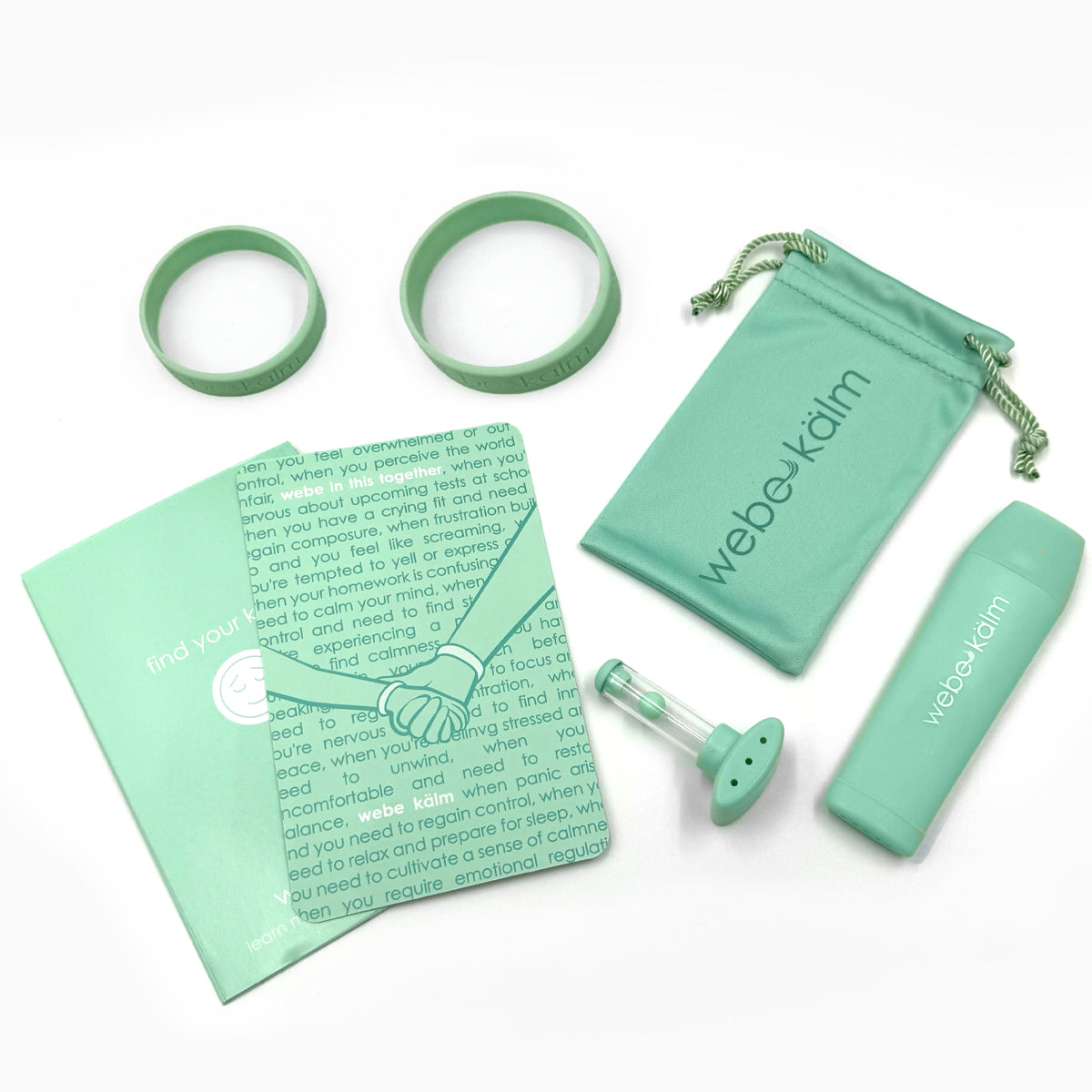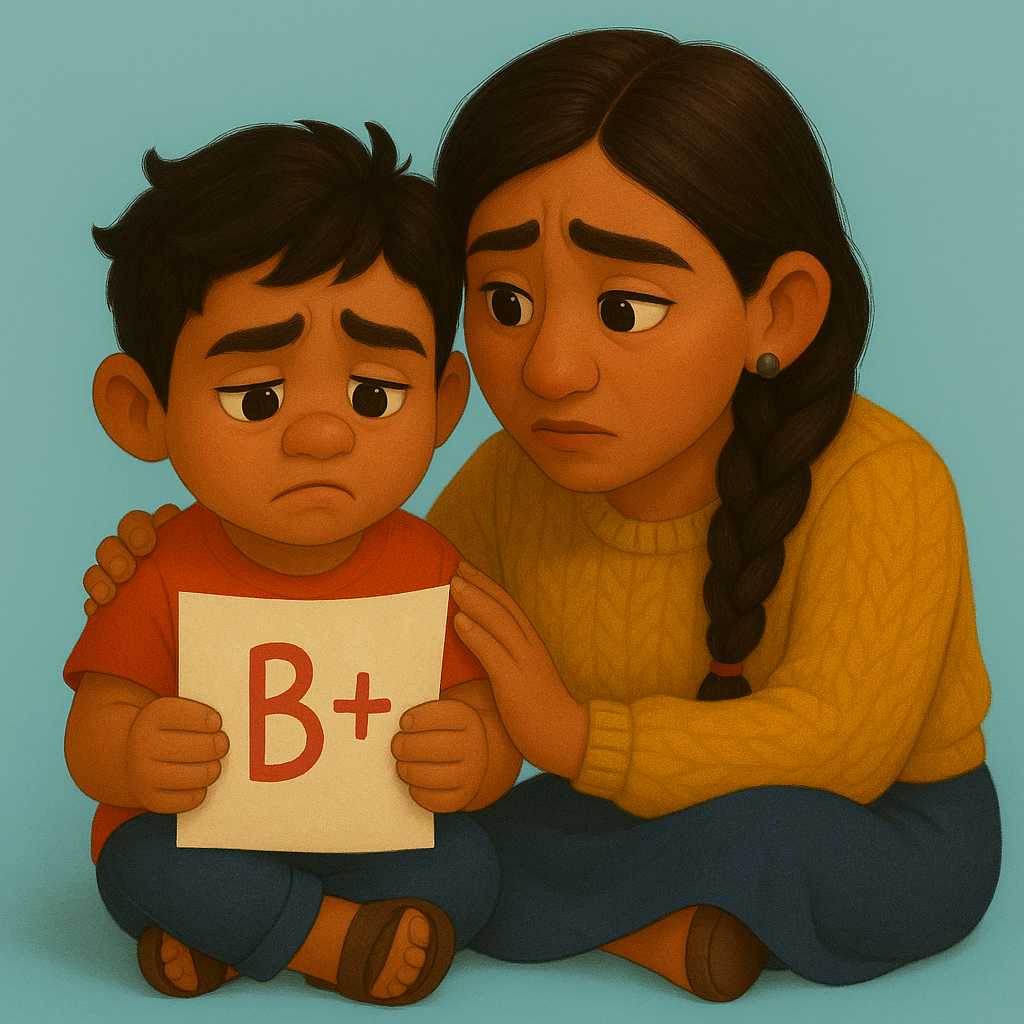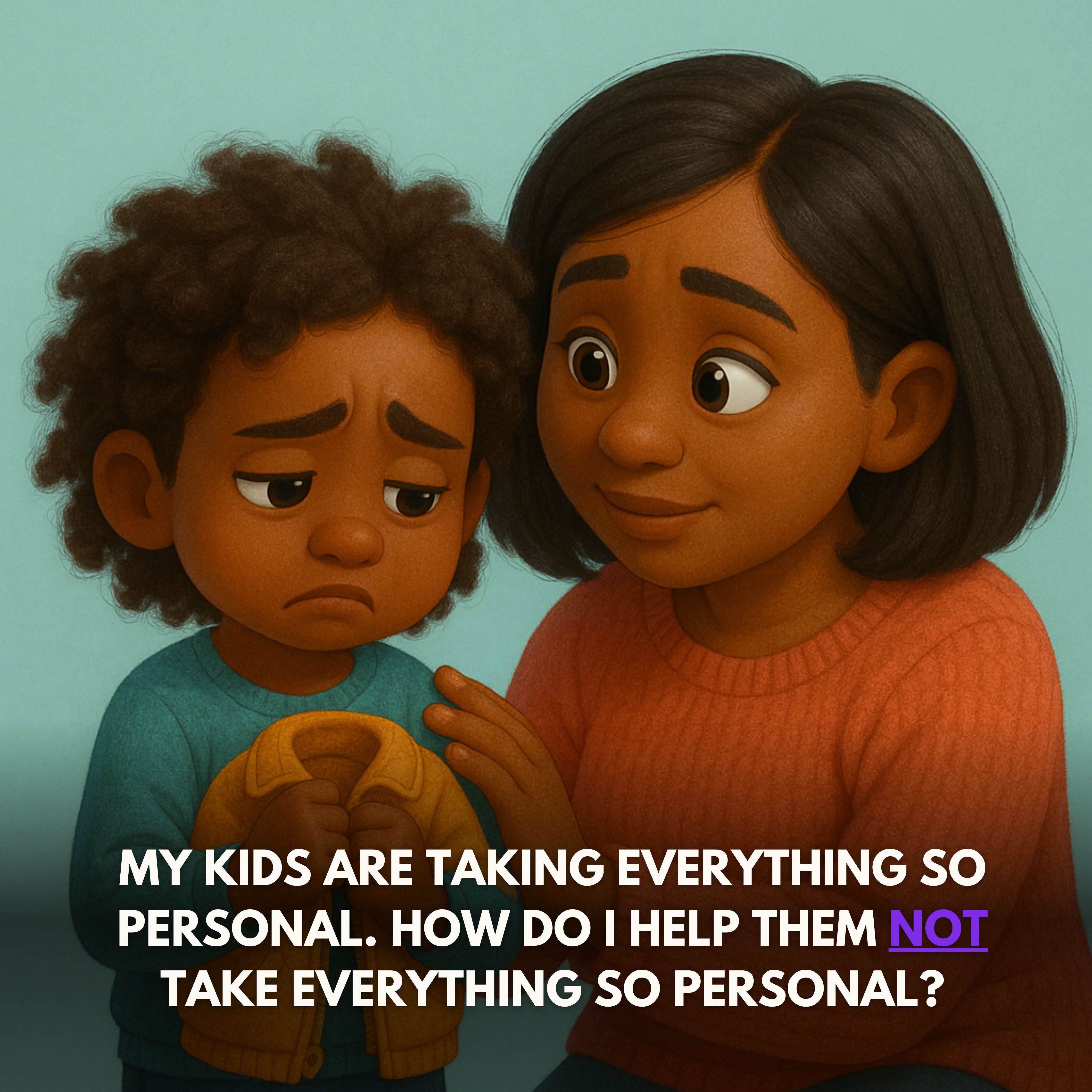Dear webe,
Lately, my 9-year-old has been melting down over the smallest things — a B+ on a test, not being picked first in gym, even a drawing that doesn’t look “perfect.” They call themselves “stupid” or say they’re “not good enough,” even though we always tell them how proud we are no matter what. I don’t know where this is coming from, but it hurts to see them so hard on themselves. How can I help them see their worth beyond achievement?
— Trying to Reach My Kid
Dear webe Response
Dear Trying to Reach My Kid,
First, we want to say: you’re not alone. So many parents are watching their children wilt under invisible pressures — to perform, to impress, to always “be good.” It’s heartbreaking, especially when all you want is for your child to feel loved just for being themselves.
What you’re noticing — your child equating their worth with outcomes — is something that many of us adults wrestle with, too. That voice inside that says, “If I do better, maybe then I’ll be enough.” It doesn’t come from nowhere. It grows in environments where love starts to feel conditional: praised when we succeed, ignored when we don’t.
Even in loving homes, kids pick up on subtle cues from school, media, and peers. A chart that rewards “good behavior.” A teacher who lights up only when the work is perfect. A friend who stops talking after a mistake. Their nervous systems learn quickly: being impressive equals being safe.
So how do we help a child untangle their identity from achievement?
We begin not by correcting the thought (“You ARE good enough!”), but by calming the part of them that’s afraid they’re not. Here’s what that might look like:
-
Co-regulate first. When your child is upset, your calm presence is more powerful than any words. Try sitting close, offering a gentle touch or soothing tone. Breathe slowly. Let them feel you’re not rushing to fix them — just to be with them.
-
Name the story with compassion. You might say, “Sounds like there’s a part of you that thinks you have to be perfect to be okay.” Not “You’re being dramatic,” but “That must be a hard voice to carry.”
-
Offer a new internal voice. Over time, give them language that honors effort without tying it to worth:
“You worked hard — that matters, AND you matter no matter what.”
“It’s okay to be disappointed, but your grade doesn’t change how proud I am of who you are.” -
Build moments of worth not tied to doing. Snuggle without a task. Laugh at nothing. Let them feel they are delightful just by being in the room.
-
Let go of the chase in yourself, too. Children absorb more from how we live than what we say. If you notice the urge in yourself to overdo, overfix, or earn approval — pause. Take a deep breath. Let your body remember you’re enough, too.
These shifts take time. But each moment you meet their shame with steadiness — each time you say “you’re lovable just as you are” with your presence, not just your words — you’re showing them the truth they were born knowing:
They don’t have to hustle for love.
They already are.
From one parent doing the best they can to another, webe in this together!
Best wishes,
webe
P.S. If this topic resonated with you and you’re curious how it shows up in your own life—not just as a parent, but as a person—we wrote about this same theme from a more personal angle in our Substack article. It’s a gentle reflection on how we chase our worth, mistake doing for being, and slowly learn to come home to ourselves.












Leave a comment
All comments are moderated before being published.
This site is protected by hCaptcha and the hCaptcha Privacy Policy and Terms of Service apply.